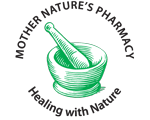Introduction
The prostate is a walnut shaped glandular structure that surrounds the male urethra at the base of the bladder. It produces a thin milky alkaline secretion which aids sperm motility to maintain an optimum PH value suitable for reproduction purposes. The contraction of smooth muscle within the gland promotes semen expulsion during ejaculation.
Benign Prostatic Hyperplasia (BPH) is an age related non malignant enlargement of the prostate gland which acts to literally squeeze the male urethra hence diminishing the flow of urine. This creates a stagnation of a urinary pool in the bladder providing an ideal culture medium for pathological organisms thus explaining the occurence of urinary tract infections (UTIs) and renal disease in extreme cases.
Cause of Benign Prostatic Hyperplasia
Sexual stimulation as well as erection originate in the brain where testosterone receptor sites are provoked to ignite a cascade of biochemical reactions involving nerves, blood vessels and muscles. Most testosterone is produced by the leydig cells of the male testes and this “free” testosterone promotes male characteristics, muscle growth, sexual desire, and the ultimate fulfillment during the sexual act.
As a man ages the level of “free” testosterone naturally declines and the level of estrogen increases. The excess estrogen must be suppressed because it competes with testosterone for testosterone receptor sites and is a primary culprit in the development of BPH. Testosterone itself can also aromatize to form dihydrotestosterone (DHT) which acts vigorously to promote the enlargement of the prostate.
Signs and Symptoms
From the age of 40 years the prostate gland begins to hypertrophy and this coincides with a natural decline in sexual activity of many men.
Signs and symptoms BPH as listed below are directly related to the degree of compression of the enlarged prostate gland upon the urethra..
- Libido
- (a) Loss of desire as well as erectile dysfunction
- Urinary Bladder
- (a) distension
- (b) hypertrophy
- Urinary Stream
- (a) decreased caliber and dribbling is common
- (b) decreased flow rate and force
- Urgency to urinate especially at night
- Urinary Tract Infection
- Kidney Disease
Diagnosis of Benign Prostatic Hyperplasia (BPH)
-
History of Patient
-
Digital Rectal Examination
- This technique is used by your doctor to examine the external surface of the prostate. Hardened areas could possibly indicate prostatic cancer and require biopsy for positive identification.
-
Prostatic specific Antigen (PSA)
- This is measured by a simple non invasive blood test which should be carried out on an annual basis once a man reaches the age of 45 years. The test is specific for male prostate gland pathology.
- An increase in normal PSA levels for a man’s particular age may indicate that there is inflammation of the prostate, prostate cancer or benign prostate hyperplasia.
Treatment via Natural Medicine
1. Inner Cleansing Programme
A short fast lasting two to three days consuming water and organic vegetable juices will act to detoxify the whole system and enhance the natural treatment regime.
2. Diet and Nutrition
Contemporary research suggests that a diet high in protein will act to inhibit the enzyme 5 alpha reductase which is responsible for the conversion of testosterone to dihydrotestosterone (DHT). To achieve this the diet needs to be approximately 45% protein, 35% carbohydrate and 20% fat. Whether or not obesity is directly associated with BPH is questionable but “middle age spread”, decreased physical activity , and a decline in sexual relations are definitely linked to BPH.
3. Nutritional Supplements
There are many nutritional supplements and natural foods which will reverse simple benign prostatic enlargement and in fact cure the condition to make you free of symptoms and signs. The most obvious of these is Zinc which will stop testosterone from aromatizing.
At our clinic I can give you a full health appraisal and assess your zinc status by a simple test.
4. Herbal Medicine
There are many botanical herbs which can be utilized to rectify Benign Prostatic Hypertrophy. Having been brought up in a household where the use of herbal medicines was a part of life and I understand what you are going through.
Your exact prescription of herbs will be tailor made for you according to your overall signs and symptomatology as well as the detailed patient questionnaire covering all the body systems.
